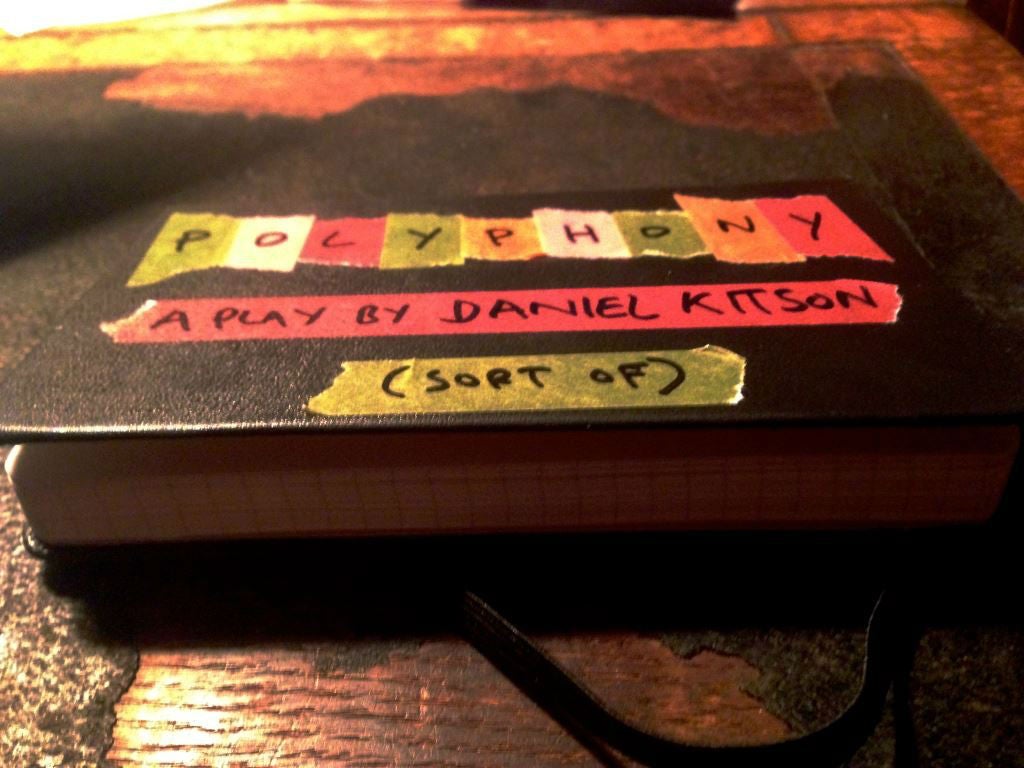Polyphony, Edinburgh Fringe review: Daniel Kitson finds another, dizzying way to tell a story
The play is performed by the writer, with the help of 15 recorded voices

Your support helps us to tell the story
This election is still a dead heat, according to most polls. In a fight with such wafer-thin margins, we need reporters on the ground talking to the people Trump and Harris are courting. Your support allows us to keep sending journalists to the story.
The Independent is trusted by 27 million Americans from across the entire political spectrum every month. Unlike many other quality news outlets, we choose not to lock you out of our reporting and analysis with paywalls. But quality journalism must still be paid for.
Help us keep bring these critical stories to light. Your support makes all the difference.
In 2012, Daniel Kitson brought a new theatre show to the Fringe. As of 1.52pm GMT on Friday 27th April 2012, This Show Has No Title was a tricksy piece which consisted of Kitson sitting at a table, reading out his script - a play within a play, of course - from front to back.
Polyphony is his latest theatrical game, this time with some technological trickery thrown in, too. It's still reassuringly lo-tech, still “TBK” (or Textbook Kitson - his coinage): on a circular stage sits a small ring of portable speakers, each one linked up to an iPod Shuffle. Kitson begins the show by handing each of these 15 speakers to visible audience members (the show is in the round), telling them to hold them up. “Don't slump!”
These, he explains, will help to tell his story - ostensibly of an 80-year old man, living in a terraced house in South London, around 40 years in the future. Immediately Kitson is heckled by his speakers. “What happens in the play?” demands one. “Do you worry your shows are all pretty much the same - sad old men with their recordings?” asks another.
And so it begins, an hour of derailments and diversions, asides and side swipes, as Kitson tries to keep his gang of recorded actors in check and tell his story. Incidentally, there's a fun game of spot the comedian to play here - Tim Key is definitely the lead disembodied voice, but I also spotted the voices of Roisin Conaty, Isy Suttie, Elis James and Diane Morgan, I think.
Polyphony is a step on from Analog.Ue, Kitson's last play at the National Theatre, which played out on 46 cassettes. This time he is interacting with his recordings live, and with precision timing. While watching him roam about the stage gives the impression of freewheeling stand-up, it is all tightly controlled. Even the apparent technical slips - which give the hour a thrilling touch of jeopardy - may not be all that they seem.
There are plenty of jokes among the crosstalk - he even manages some crowd banter with two speakers on the front row. It's not vintage Kitson comedy perhaps, but it is dizzying to watch.
Bit by bit, he draws the strands of his play to a playful, deeply meta conclusion. It's indulgent, of course - and of course he points that out himself, via his most dissenting recorded voice. Nevertheless his obsession with his reputation and his oeuvre, however tongue-in-cheek it is expressed, is becoming a bit of wearying trope, a bit “TBK”. Still, you can't fault Polyphony's execution nor Kitson's relentless quest to find new ways to tell stories.
Paines Plough Roundabout @ Summerhall, to 30 August (0131 560 1581; www.edfringe.com)
Join our commenting forum
Join thought-provoking conversations, follow other Independent readers and see their replies
Comments